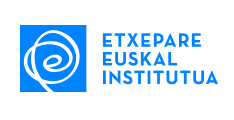By Nerea Azurmendi. Ainhoa, Aitor, Leire, Iker, Leonat… If the list continued it would reach 34 names, the complete staff of readers or teachers of the Basque language and culture who, in that many universities, provide dozens of students, with diverse backgrounds and interests, the opportunity to get to know a culture and a language that, since the 19th century, has captivated many foreign linguists. A language and a culture which, in the 21st century, is still arousing unusual interest if one takes into account its reduced implementation and the limited utilitarian value outside its small community of speakers.
34 assistantships in 18 countries on three continents may seem meager if compared to the studies of the Catalan language and culture promoted by the Ramon Llull Institute in 150 universities, more than 100 of which are in Europe. And clearly, these fade in comparison next to the hundreds of positions of Spanish teachers that Spain maintains in universities and higher education around the world, through the Spanish Agency for International Cooperation for Development, integrated into the Ministry of Foreign Affairs and Cooperation. As can be read in the announcement of its 70th edition, corresponding to the 2017-2018 schoolyear, scholarships and readerships of the aforementioned ministry “have been strengthened as one of the most coveted of Spanish foreign policy instruments.” If this network of assistantships is an important tool for the third most spoken language in the world, it’s easy to imagine the value for a linguistic community like the Basque one which could fit, in its entirely, in say, a city the size of Detroit.
With a model similar to the Catalan system, in the Basque Country these readerships are currently managed by an agency responsible for the international promotion of the Basque language and culture, the Basque Etxepare Institute, which among its functions maintains the objective “to promote the teaching of the Basque language and expand its recognition” and “help spread the Basque culture in all of its forms of expression”. Before the Etxepare Institute was fully operational, the program of assistantships for Basque language and culture was under the Basque Government’s Department of Promotion of the Basque Language, which established it between 2004 and 2005. In fact, one of the tasks which that department had been entrusted with was “to increase the presence of Basque also abroad, strengthening cooperation with the Euskal Etxeak (Basque Centers) and the program for readership positions in universities, among other things.”
In those years dating back to the first readerships, as precursors, they were established in 2004 in two Chilean universities, the University of Chile and the Pontifical Catholic University of Chile, both in Santiago, or those who began operating in 2004-2005 at the University of Valencia, at the Free University of Berlin and at the University of Helsinki in Finland.
A Long Tradition
The chain, however, began much earlier. On the 250th anniversary of his birth, it seems inevitable to remember Wilhelm von Humboldt (1767-1835), the man who ignited in Europe the flame of interest in that strange pre-Indo-European language which remained alive in the Iberian Peninsula and on the other side of the Pyrenees, the prolific Prussian who dove into the subject with ‘kantabrische oder baskische Sprache’, (Cantabrian language or Basque), in search of the origins of European languages. The fact that 2017 is also the 200-year anniversary of the publication of his first work on the Basque language makes this an even more relevant reference. Without his imprint, and his enthusiastic support for the Basque-Iberian theory, which, thanks to his endorsement, reached great popularity in the scientific community and European University at the time, it would not be easy to understand the subsequent emergence of foreign basqueologists (scholars of the Basque language) or the consequent extension of Basque studies to the most prestigious universities in Europe.
(it continues in BasqueTribune.com)



 Lagun bati bidali
Lagun bati bidali Komentarioa gehitu
Komentarioa gehitu








